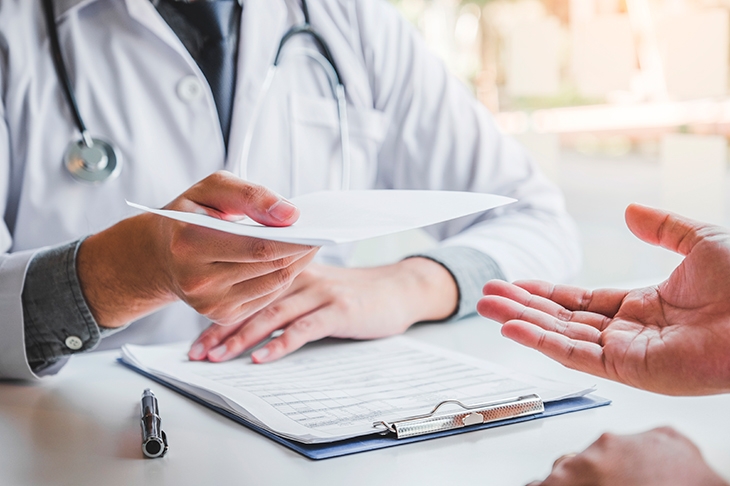My last NHS scan showed a shadow on a rib. The scan report couldn’t decide between a new cancer metastasis or scarring from an old injury. The first would mean the cancer had moved into my skeleton and was on a winning streak. I have fractured ribs in sharp collisions with steering wheels more than once and cling strenuously to the old-scar hypothesis.
The image showed a second suspicious blur. Something, possibly a tumour, was putting pressure on my left kidney. Since then I’ve been going around with a length of plastic tube inserted in my urethra to drain it. Until that point my cancer was just a word. Now an occasional throb or ache there reminds me forcibly of my destructibility. More recently, my prostate-specific antigen score, measured by a blood test, which had been beaten down into the normal range by a daily pill, has risen sharply, strongly indicating that the cancer has its boots on.
All of which is as intensely boring to me as it no doubt is to you. But last week this combination of fact and speculation had to be marshalled and presented articulately to a urologist at a Marseille university teaching hospital who had offered to find half an hour in his busy day to hear my case.
After two years of tentative maleness, I must now transition to being a female again
Under normal circumstances, I wouldn’t have troubled him. But I had run out of tablets and my oncologist back in the UK suggested, via a telephone call, that I get restarted on anti-hormone injections. Back in 2013 my cancer treatment had begun with these injections. Turning me into a woman made the cancer retreat, saving my life. After two years I was tentatively allowed to return to maleness. Now that the cancer has reasserted itself I must transition again.
Covid quarantine regulations and my itinerancy have disrupted the continuity of the cancer treatment I was receiving in the UK from the NHS. A neighbour who lectures at a Marseille hospital arranged for me to have an informal appointment with a urologist there. He might at least be able to write me out another prescription for my failing medication, we thought. At a push he might also consent to administer the first gender-bending injection.
Anyway it was a day out. More than that I couldn’t hope for. Marseille is a Covid hotspot. Presumably the hospital was on an emergency footing and the man was rushed off his feet and lending the gravediggers a hand between consultations. I had no money to pay for treatment, no French bank account, no residency status in France, no French health-insurance card. And I looked well. All I could offer was my European Health Insurance Card, due to expire when the UK leaves the European Union in December.
As I was about to knock on this urologist’s door, my sense of beggarliness was exacerbated by the lightning-bolt realisation that I’d left my phone on a bench outside the hospital administration block. Mentally abandoning my phone to its new owner, and myself to the mercy of a French urologist with probably hundreds more pressing or valid claims on his valuable attention than mine, I proceeded to knock.
He was in his mid-thirties and radiated intelligent focus, seriousness and moral rectitude. I sat facing him across his desk. He had zero time for small talk and fired about 20 questions at me relating to the history of my seven-year-old cancer, ending up with the rib and kidney business. Then he briskly put another ten questions concerning my work, habits, general health, financial affairs and the frequency of my movements between France and the UK. His English was better than mine. He noted my answers in pencil on a torn-off scrap of paper. Then he spread his long, manicured, hygienically clean fingers on the desk, sighed and reached a decision. ‘It’s really very simple,’ he said. ‘You live in France. You are ill. You need treatment. We will treat you.’
I gaped. He crisply detailed a long-term treatment plan. First, a scan to identify the ambiguities concerning my rib and kidney. Next, to treat those sites where possible. Financing the €4,000-a-month treatment would be tricky but not insurmountable, in spite of Brexit. He would put my case before the relevant committee of specialists and administrators and phone me with their decision within two days. He was optimistic, he said, meeting my eyes levelly. Fearing he might see into my black, perfidious Leaver heart, I offered abject, incredulous thanks. We left the room together as if in a walking race.
Mentally reeling from this display of French rationality and generosity — totally undeserved — I went to the help desk in the administration-block foyer and asked whether, by any remote chance, anyone had handed in a phone. They had. The woman was as glad to give it to me as I was to receive it. Two days later, the urologist called as promised and gave me the nod.







Comments